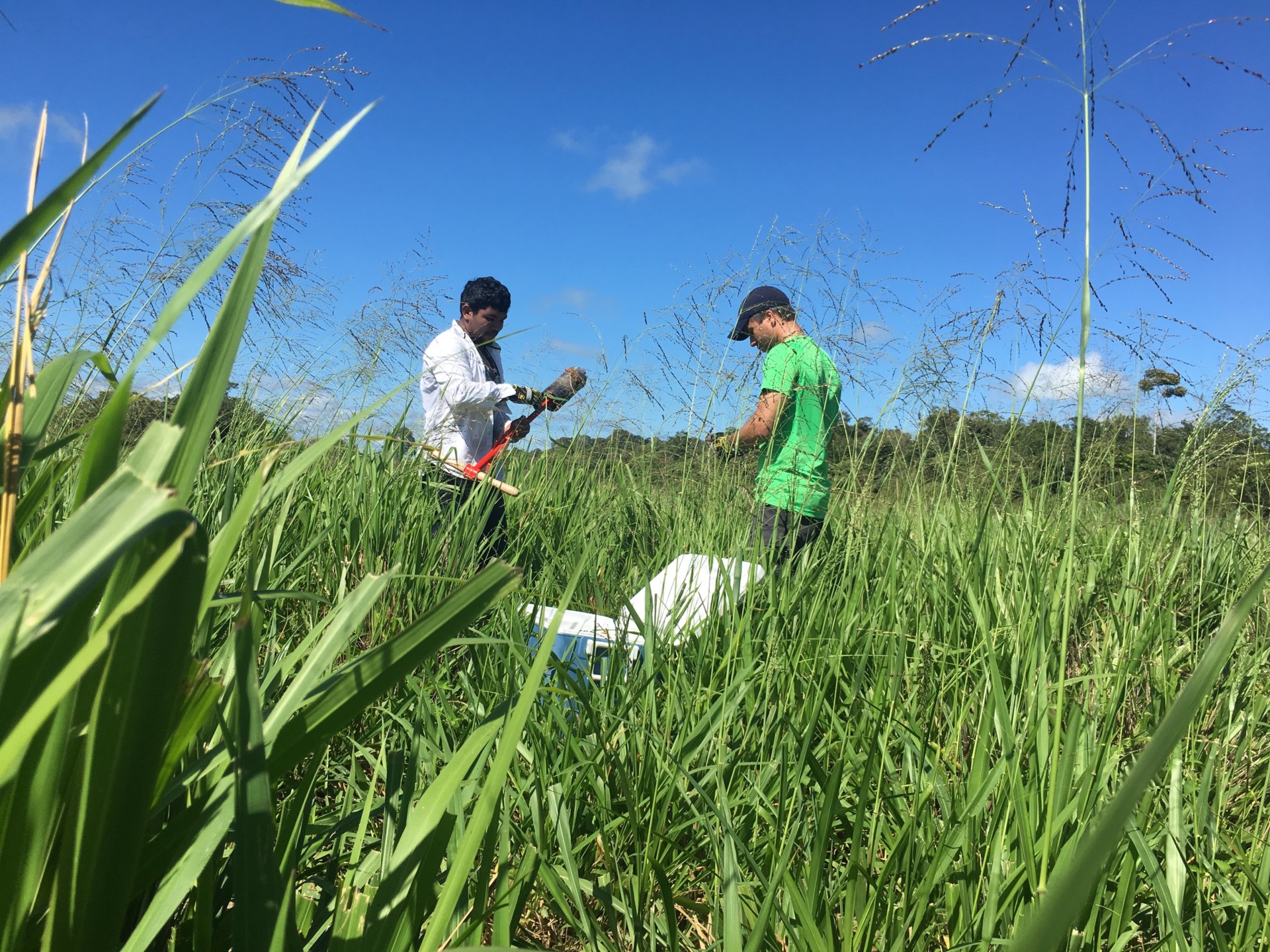
CSU is the recipient of more than $12 million for sustainable agriculture research under a new $2.8 billion federal program, the USDA recently announced.
The awards identify 70 projects under the Partnerships for Climate-Smart Commodities. Projects are funded between $5 million and $100 million each. CSU is a participant in nine projects, many led by other institutions, harnessing innovation and market forces to achieve impacts quickly. In addition, farm-scale greenhouse gas measuring tools, called COMET and developed by CSU scientists, could be used on dozens of projects.
The investments focus on greenhouse gas reductions and commodity production for programs supporting farmers, ranchers and forest landowners and managers. For CSU, a top sustainability campus in the United States and a leading land-grant university, the funds are an opportunity to expand the reach of research across Colorado and beyond.
‘Interdisciplinary perspective’
“This is about accelerating our response and innovation around the climate crisis and bringing in partners across the agriculture sector to address a big global challenge,” said Meghan Suter, assistant vice president at the CSU Office of the Vice President for Research. “The climate crisis is bigger than any one entity can grapple with, so we need interdisciplinary perspective and research participation from government and industry.”
U.S. Agriculture Secretary Tom Vilsack spoke to officials in Denver on Sept. 19, extolling the new program as good for the planet and the state’s farms and ranches.
“There is strong and growing interest in the private sector and among consumers for food that is grown in a climate-friendly way,” Vilsack said in a press release. “Through today’s announcement of initial selections for the Partnerships for Climate-Smart Commodities, USDA is delivering on our promise to build and expand these market opportunities for American agriculture and be global leaders in climate-smart agricultural production. This effort will increase the competitive advantage of U.S. agriculture both domestically and internationally, build wealth that stays in rural communities and support a diverse range of producers and operation types.”
A list of all the funded projects can be found here.

About the projects
CSU is listed as a main partner on at least nine projects, including:
Building a climate-smart domestic rubber industry and a solution to a water crisis for growers. The project will expand rubber production in the Southwest with reduced GHGs as part of a bioeconomy. Funding ceiling is $35 million, CSU’s portion is $1.5 million, and CSU’s principal investigator is Assistant Professor Jason Quinn of the Walter Scott Jr. College of Engineering.
Building a regenerative ranching economy in the West. The project will implement climate-smart grazing practices for beef production for 120 operations across 13 states and 7 million acres of public and private rangelands. The funding ceiling is $10 million; CSU’s portion is to be determined.
Climate beneficial fiber: Building new, accessible and equitable market opportunities for climate-smart cotton and wool. The project will expand the existing Climate Beneficial™ fiber program, a system for sequestering carbon, regenerating soil health and resilience, improving social equity, and bolstering America’s ability to produce climate-smart fiber. Funding ceiling is $30 million, CSU’s portion is $1.04 million, and the CSU PI is Professor Keith Paustian at the College of Agricultural Sciences.
Climate SMART (scaling mechanisms for agriculture’s regenerative transformation). This project spans 28 states, aims to catalyze a market-based network to broaden farmer access, scale adoption of climate-smart practices, and sustainably produce grain and dairy commodities. The One Water Solutions Institute at the CSU Department of Civil and Environmental Engineering and Truterra will work to provide agriculture modeling capabilities with the goal of reducing 7.2 million metric tons of CO2 equivalent in five years. The funding ceiling is $90 million for all participants.
Expanding the STAR program across Colorado and the West. This project offers a comprehensive approach that empowers conservation districts and others across Rocky Mountain states to help build climate-smart markets and provide technical assistance to a diverse range of producers; provides three years of financial and technical assistance to producers; quantifies and verifies climate benefits on behalf of producers; develops a rating as a market signal so participants earn more for products grown with healthy soil practices; and evaluates and validates carbon and soil-water research for the arid West. The funding ceiling is $25 million, the CSU portion is $6.86 million, and the CSU PIs are Jim Ippolito and Megan Machmuller of the College of Agricultural Sciences.
Ippolito said the program will encourage best management practices for soil health to achieve greater carbon and water storage, while providing market signals for products that benefit the climate and sustainability.
“We hope to create a system whereby soil health data is accessible by anyone interested, a database that can be teased to discern how alterations to soil affect carbon and water in an ever-changing climate,” Ippolito said. “It will become a market signal for producers to sell their products based on creating climate smart, resilient and sustainable agro-ecosystems to aid consumer choice.”

National Sorghum Producers partnerships for climate-smart commodities project. This project will implement climate-smart production practices across hundreds of thousands of acres of sorghum working lands over a five-year period, with the goal of reducing hundreds of millions of pounds of carbon emissions and developing markets for sorghum as a climate-smart commodity. The funding ceiling is $65 million; CSU’s portion is to be determined.
Portfolio of partnerships for Hawaii climate-smart commodities. This project will help overcome climate-smart implementation barriers through investment and incentives, improve technical assistance capacity through community-based organization networks, build decision support tools for modeling/verification, and generate internal momentum for a market-based climate-smart sustainable food system across Hawaii. The funding ceiling is $40 million, CSU’s portion is $1.32 million, and the CSU PI is Yao Zhang at the College of Agricultural Sciences.
Reducing GHG emissions and improving soil carbon sequestration potential through high-carbon soil amendment. This pilot project will support expansion of climate-smart markets and practices to augment conservation best management practices and generate data to support development of ecosystem services models mainly in Colorado, Nebraska, Wyoming and Montana, where soils have higher potential for carbon storage. Funding ceiling is $6 million, and a portion of funds go to students in the Impact MBA Corporate Sustainability Fellowship program at the CSU College of Business, a joint project with the Western Sugar Cooperative.
The GEVO climate-smart farm-to-flight program. The project aims to create climate-smart market incentives for low carbon-intensity corn as well as to accelerate the production of sustainable aviation fuel to reduce the sector’s dependency on fossil-based fuel. Funding ceiling is $30 million, CSU’s portion is $2.35 million, and the CSU PI is Associate Professor Jason Quinn in the Walter Scott, Jr. College of Engineering.